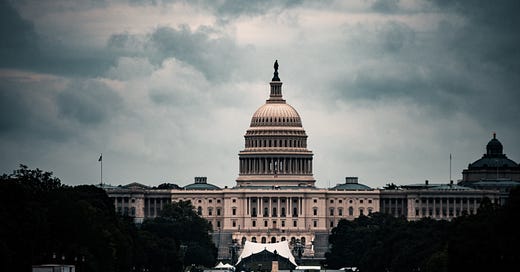Establishing Principles for Corporate Political Responsibility
As companies face increasing public and internal calls for action on environmental and societal crises, more corporate leaders are launching or expanding practices to enhance their impact and chart a path for long-term business success. But their words and actions sometimes don’t align with their political contributions and lobbying efforts, an issue that came under the spotlight in the wake of the divisive 2020 election and Jan. 6 Capitol attacks.
One backdrop for this corporate discord is the current era of ever-growing corporate political spending, which continues to set records in the wake of the U.S. Supreme Court’s Citizens United ruling, and a pay-to-play system where high-dollar donors influence policy decisions that may benefit their bottom line but harm the planet or society at large.
As part of my research on purpose-driven business, I recently spoke with Elizabeth Doty, Director of the Corporate Political Responsibility Taskforce (CPRT) at Erb Institute, University of Michigan. Founded in 2021, CPRT aims to help companies better align their approach to political influence with their purpose, values and commitments and to help establish CPR as a shared norm. Following that interview, I also gathered written input from Erb Institute Faculty Director, Tom Lyon. Below are some of the key points from my Forbes article on the topic that highlights the work of CPRT.
The first output of CPRT is the Erb Principles for Corporate Political Responsibility, which received supporter from IBM, Pirelli Tire North America, Danone North America, Aspen Skiing, DSM North America and more. Lyon says that “the basic idea of corporate political responsibility is that companies not only need to align their words and actions with their commitments, but that they also have a shared interest and a responsibility to support the larger systems on which we all depend.”
Doty suggests that before engaging in civic and political affairs companies need to consider four factors, which are (1) legitimacy, i.e., on what basis do we authentically engage in civic or political affairs? (2) accountability, i.e., are our political activities aligned with our values, purpose, and commitments to all stakeholders? (3) responsibility, i.e., do our political activities support the systems on which markets, society and life depend? and (4) transparency, i.e., do we communicate openly about our political activities to relevant stakeholders and to promote public trust?
Lyon talks about importance of focusing on foundational systems. “We debate how to solve problems and create opportunities for people, planet and profit, but we often lose sight of the role of market rules, civic institutions, and civil discourse in shaping whether that actually happens,” he says.
Younger employee’s engagement and increasing expectation of their companies present both opportunities and challenges. Doty says, “we can view these perspectives as a way to keep ourselves honest, to challenge our assumptions, and perhaps as a valuable source of a more systemic view.” “But there is a risk of a dangerous precedent, of using corporate power for any preferred cause,” she adds.
Doty says U.S. are special in the sense that businesses have exceptional power to influence political decisions. “It is just such a conflict of interest, for an economic entity to influence economic rules. I’ve had senior executives from global companies laugh when I discuss CPR because corporate political influence is not even legal in most places.”, she speaks.
Doty previous social contracts constructed by interest groups like Business Roundtable are increasingly challenged. “One of our foundational premises is that you will help enable markets to serve their purpose, which was the whole point of the invisible hand idea — to serve and create value for society — so that you’re hurting stakeholders from the get-go if you’re not doing that,” she says.
Fundamentally companies benefit from a well-functioning constitutional democracy so defending it is aligned with their long-term interest. “Companies depend on effective civil discourse and an informed public, and they have an influence on that,” Doty says. “By working to strengthen those, they will be aligning incentives with real value for the long term, which has an enormous impact on the the environment.”
As Doty suggests, companies are increasingly going to be held accountable for their action, which constantly sets them up for hypocrisy traps. It is therefore crucial for companies to align their political actions with their social and environmental claims.




